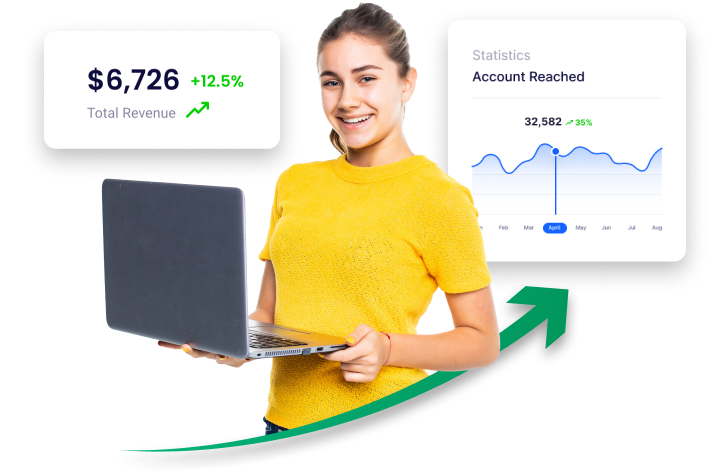

The Giant Behind the Traffic
93% of traffic comes through Google search
Research reveals that 93 per cent of users come through Google search results, making On-Page SEO an essential digital marketing strategy.
Decoding Your Website
Cracking the code to online visibility

Partner with us to seize the On-Page perks!
Check out how it can transform your business.

Increased online visibility
On-page SEO helps improve a website's visibility on SERPs. When your website ranks higher in search results for targeted keywords, it becomes more visible to potential customers, leading to increased brand exposure and awareness.

Higher organic traffic
On Page SEO can drive organic, non-paid traffic to your website. When your website appears on the first page of search results, it is more likely to receive clicks from users who are actively searching for products or services related to your business. This can result in higher website traffic, leading to increased opportunities for conversions and sales.

Enhanced user experience
On Page SEO involves optimizing various aspects of a website, such as its content, structure, and performance, to provide a better user experience. A well-optimized website with relevant content, easy navigation, fast load times, and mobile-friendliness can result in improved user engagement, increased time spent on the site, and higher chances of conversion.

Cost-effective marketing
SEO is a cost-effective marketing strategy compared to paid advertising. While paid advertising requires ongoing budget allocations, SEO focuses on organic rankings and long-term results. Once your website gains traction in search rankings, it can continue to generate organic traffic and leads without incurring additional costs.

Competitive edge
In today's competitive online landscape, SEO can give business owners a competitive edge. By outperforming competitors in search rankings, business owners can capture more visibility, leads, and customers, gaining an advantage over their competition.

Long-term business investment
SEO is a long-term investment that can yield sustainable results over time. With continuous monitoring, analysis, and optimization, SEO can help businesses establish a strong online presence, build brand authority, and drive consistent organic traffic, resulting in long-term business growth.

Discover the Difference Today!
How do we make it work?
Keyword research
Identifying the right keywords and key phrases that are relevant to a business's products, services, and target audience. This involves researching and analyzing search volumes, competition, and user intent to identify high-performing keywords that can drive targeted traffic to your website.

On-page optimization
Optimizing various on-page elements of a website, such as meta tags, headers, URLs, and content, to align with the targeted keywords. This includes ensuring that the website's content is high-quality, relevant, and properly structured to be easily understood by search engines.

Technical SEO
Optimizing the technical aspects of a website, such as website speed, mobile-friendliness, crawlability, and indexability, to improve its performance and visibility on search engines. This may involve fixing broken links, optimizing robots.txt, improving site architecture, and more.

Content optimization
Creating and optimizing high-quality, relevant, and engaging content that is optimized with targeted keywords. This includes creating new content, optimizing existing content, and ensuring that the content is properly structured with relevant headings, subheadings, and keyword usage.

On-Page Elements Optimization
Close attention to elements such as title tags, meta descriptions, headings, and internal linking. They optimize these elements to accurately reflect the content of each page and target relevant keywords. Compelling title tags and meta descriptions also signal to search engines what your page is about.

Monitoring and analysis
Continuously monitoring and analyzing the performance of the website using web analytics tools to measure key metrics such as organic traffic, rankings, conversions, and user engagement. This helps in identifying areas of improvement and making data-driven decisions for further optimization.

Get In Touch With Us!

Keyword research
Identifying the right keywords and key phrases that are relevant to a business's products, services, and target audience. This involves researching and analyzing search volumes, competition, and user intent to identify high-performing keywords that can drive targeted traffic to your website.